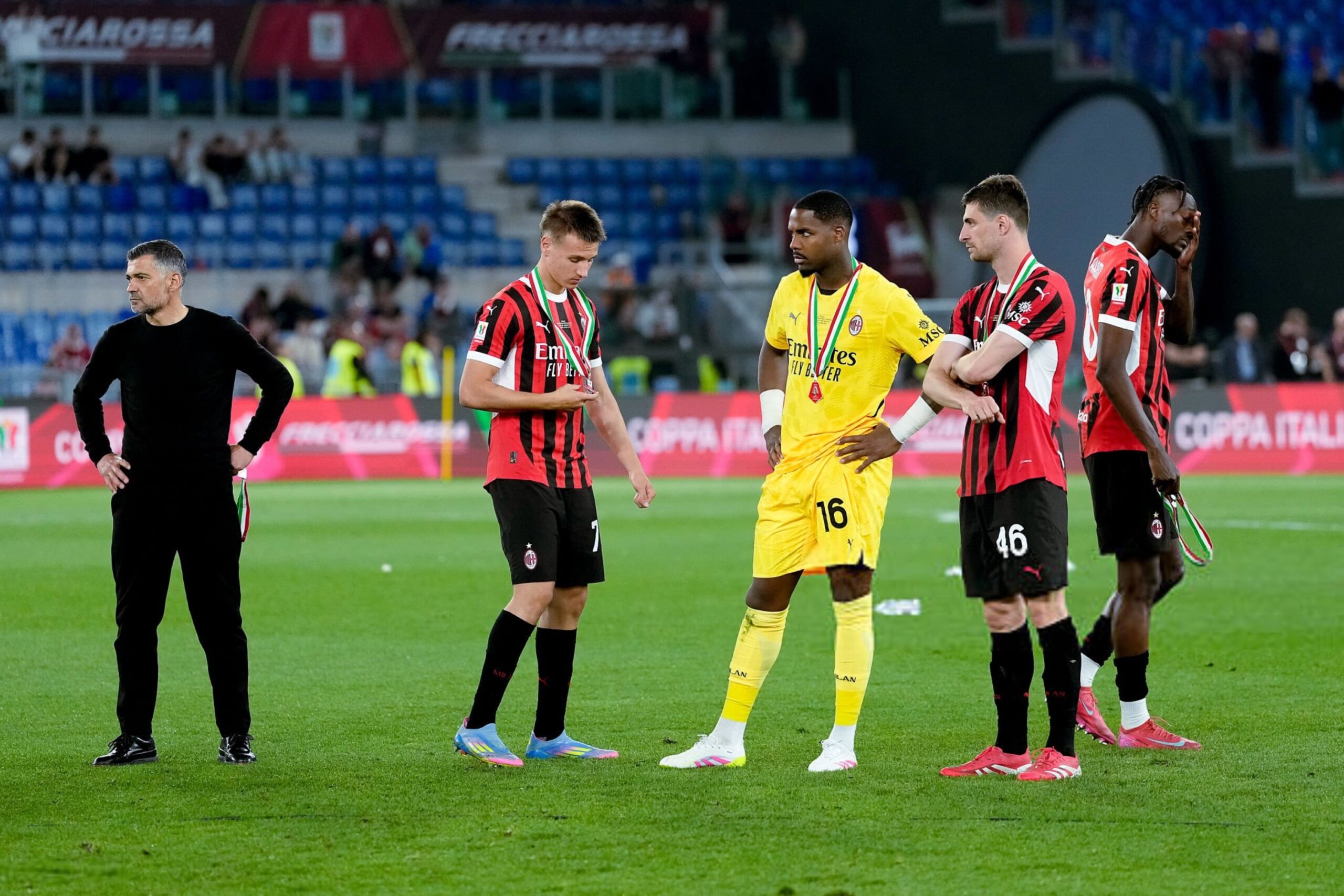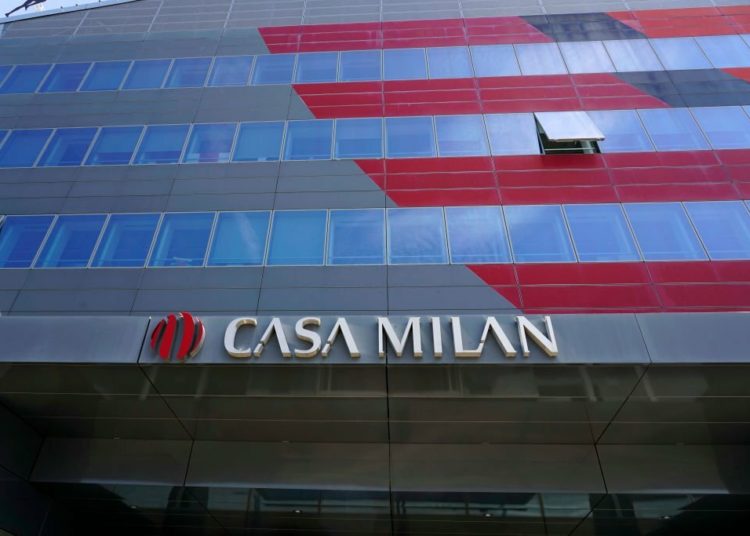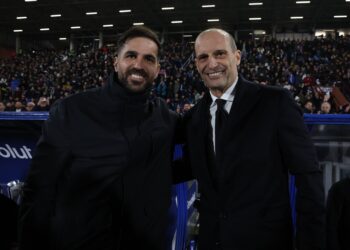And so we find ourselves having to tell of yet another seasonal failure for Milan, the usual poorly prepared match and played even worse by a group that for some time now manages to be effective only in words: it's a pity that in football the only thing that matters is the 90 minutes on the pitch.
For the third consecutive year, RedBird’s and Gerry Cardinale’s Milan ends the season in a disastrous way: a Champions League derby in the semi-final lost in humiliating fashion, an indescribable figure in the Europa League against the modest Roma of De Rossi, and a trophy lost to a Bologna that hadn’t won anything in 51 years. Three years, three sporting “tragedies” that leave the fans bewildered. But the worst thing is that this is not even the most serious aspect.

Gerry Cardinale’s Milan is a club that over time has lost its soul, identity, and sense of belonging.
Since the ousting of Maldini, everything that was feared might happen has indeed happened. They boast about a full stadium, record sales in merchandising, and how the third and fourth kits bring in record figures. They talk about a new stadium (but only talk), about footballing pioneering and innovative methods. But then the Scudetto-winning Milan taken over by Cardinale after three years finds itself in eighth place, out of the Champions League, having suffered yet another sporting humiliation, and with a fanbase that can't stand seeing the likes of Scaroni and Furlani representing THEIR team.
The serial scolders will come and say that it’s not right to make comparisons, but a model that works, even following "foreign" logic, is there for all to see. It is precisely Joe Saputo’s Bologna: an owner who is present and close to the team and the environment. Competent executives who know the ins and outs and nuances of Italian football. Recognizable figures in management with clear roles, without stepping into other areas.
On this side instead, there is an absentee owner who hasn't been at San Siro since the match against Venezia at the beginning of the season, skips the club’s 125th-anniversary celebration, and wasn’t present for yesterday evening’s Coppa Italia final, without even bothering to let the usual excuse of prior commitments leak out. In the club, there is a working group that after years still creates confusion among the fans: who decides? Who does what? Who has the final say? Regardless of the answers, it’s clear, and now it’s a truism confirmed by facts, that whoever decided to discard the Conte of the situation to show up first with Lopetegui (!!!!!!) and then with Fonseca (Paulo, in the end, had at least tried in his own way to tackle the distortions of this sick environment) is not up to a club like Milan.
In Bologna...
let's continue to take the Felsinei as an example, there is cohesion, compactness, an environment that breathes in unison with the team and the club. In Milan, there is a company that speaks corporate jargon and treats the fans like customers to squeeze and drain. But be careful, because beyond the wallets, the passion is also drying up: on this day three years ago Milan-Atalanta was played, the last home match of the season that then led to the Scudetto of Pioli, Maldini, and Massara. A San Siro like that, pulsating and full of pure passion, is a spectacle hard to forget and that will remain forever in the heart of those who were present. If that day someone had tried to predict that today we would find ourselves in this situation, they would have been taken for a madman.
It was right, however, to have given time since projects cannot be judged in a few months. But after three years, it can be said: structured in this way, the American project of RedBird is a failure. The fan doesn’t care about merchandising, revenues, business plans, and so on: these are all fundamental things in modern football and no one doubts that, but placing them at the center of everything and even boasting about it is a suicidal, insane, and idiotic choice.
In football, in sport, the only thing that matters is competing to try to win to the best of your possibilities! This Milan instead gives the impression of putting this aspect at the very bottom of its priorities. Of course, it doesn’t mean you always win and defeats like yesterday’s are commonplace in professional competitions. But it’s the way the defeat was reached that fuels the anger, gives dismay, and creates disillusionment.
At San Siro, the hot dog doesn’t take root; it’s time for those in charge to understand that, concludes Milannews.it.
















